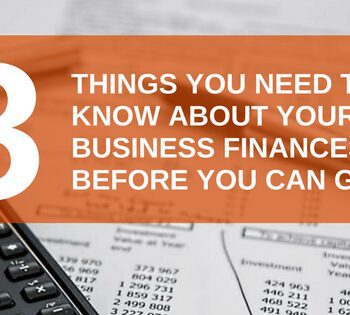
What to Do if Your Business is in The Hole
What to Do if Your Business is in The Hole
If your business is battling, you need to take immediate action. Here are a few pointers for you if your business is in the hole.
1. Figure out how deep the hole is
The first thing about the hole is you need to know how deep it is. You need to base your decisions on the facts. When it comes to deciding on possibly your most significant personal investment, don’t be guessing! What you really need is a 12-week rolling cash flow forecast. This will show you the ins and outs of cash in the business in that time. It will show you what sort of runway you have to restructure and decide what you’re going to do.
2. Get control of the cash
Cut the costs as quickly as you can, particularly unnecessary ones and ones you can really do without. Only pay out what is necessary. Get control of the cash and keep control of the business. If the business is particularly stressed, it will protect you as a Director legally to get third party professional advice at an early stage. With distressed businesses, there are risks that you may be wrongfully trading as a director and there are various legal issues that you need to be concerned about.
3. Determine if you are wrongfully trading
What do we mean by wrongful trading. Dictionary.com defines wrongful trading as, “Allowing a firm to continue trading in a situation where a recently diligent person would realise that the firm’s insolvency is inevitable.” If you continue in wrongful trading, the consequences can be severe on you as directors. “Directors of a firm who know or ought to have known that it’s insolvency could not be avoided, may be held personally liable to its creditors if it becomes bankrupt or is liquidated.”
If you should have known that the company was going to become insolvent, and you do nothing about it, then you are at risk that some of the debts of the company will become your personal liability. If the company goes into insolvency, there are even more sanctions if you’re deemed not just to be wrongfully trading, but fraudulently trading.
If you are in this situation I’d strongly suggest you talk early to an experienced FD and/or Insolvency Practitioner. You’ll get some good free advice and they’ll normally be happy to take your call in the future if you want a second opinion on things.
4. Seek help
Seek help but be cautious. Insolvency Practitioners are ultimately there to sell. They have a range of solutions that they make good money from, and may not be as aligned to recovering the business as you are. Make sure you take time to think clearly when you’re in this stressful situation and consult with others who have a more objective viewpoint. Particularly bear in mind, as always with business, what that person wants to get out of it and how that might skew their advice.
If you do decide that you need to put your company into administration you want an Insolvency Practitioner you have got to know and trust. Costs can vary wildly. I’ve seen Insolvency Practitioner’s charge £30k for a job which others would have done for £5k. Do talk to two or three before you make a final decision and get personal recommendations where possible. We can certainly help in that area if needed.
5. Turnaround plan
Let’s say it’s not as bad as that. Perhaps you want to really develop a turnaround plan. A good turnaround plan will get you to:
- Focus on the core areas of competence of your business, the knitting
- Get rid of unprofitable business and cost that is not essential
- Focus on profitable business and what generates fast cash flow. Sometimes you may need to sacrifice some of the bigger opportunities, just to get some blood flowing around the system
These are all things you should be doing now. The earlier you do them the less trouble you’ll get into later on.
6. If it needs to die, kill it
Distressed companies are draining and can be death from a thousand cuts. You owe it to yourself, to ask yourself some hard questions. Do you really want to continue with this business? Do you have better opportunities elsewhere? It may not seem like it at that time, but if you let go of the business, it can be quite a relief. It can give you a new lease on life and new energy.
Take time out to properly think this through. Is this really what you want? If it’s not, then close the business down in as orderly a manner as possible. You’ll want to assist your key clients, key suppliers and your employees as best as you can, however, don’t forget to look after yourself.
Alternatively if you do want to focus on that turnaround and you see great opportunities moving forward, get buy-in to it from your key stakeholders and go for it!
If you’d like to learn more about this and need help with getting your business out of the hole, get in contact with us today.
Author: Shaun Walsh, Finance Director and Founder of Business Growth Services.



